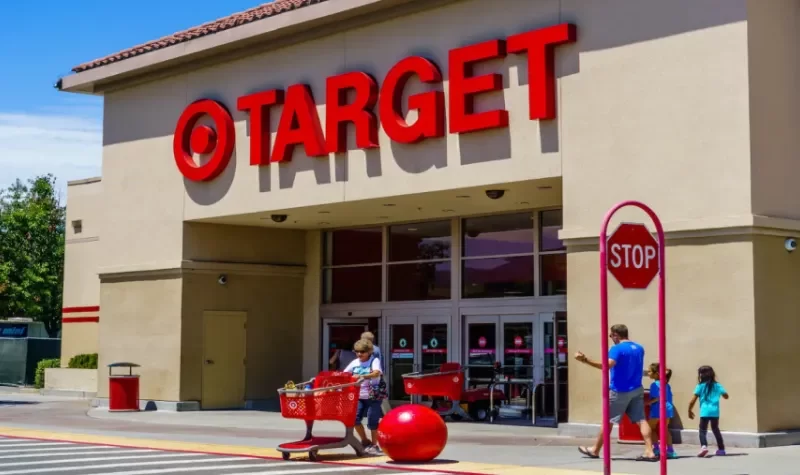The term “coordinator” refers to a person who brings together different components or people to complete a project. The job title usually starts with what they are coordinating.
To run a particular program, for instance, a program coordinator would coordinate the people, projects, and resources.
Depending on the industry, different skill sets will be needed, but it’s safe to say that successful coordinators are well-organized, effective, and have good interpersonal skills. In order to plan, synchronize, and carry out complicated tasks with a diverse group of people playing various roles, coordinators must exercise critical thinking.
For more specific information, keep reading.
Table of Contents
What Do Coordinators Do?
Events, programs, and projects are scheduled and planned by coordinators. Your duties and the required qualifications for this position vary depending on the industry you work in. Project coordinators are employed in the building, manufacturing, and development sectors. Program coordinators, on the other hand, are frequently found in educational institutions, non-profit organizations, and community outreach programs. Coordination may involve creating schedules and budgets for the ordering and delivery of goods or services for those who work in the labor industries, whereas an instructional coordinator at a school may create a curriculum for an after-school program.
Common Types Of Coordinators
Program Coordinator
A program coordinator manages the planning and execution of programs, frequently for the benefit of the community. You collaborate with community members to identify the different needs the community has before creating programs to address those needs. Numerous administrative facets of the program are under your control, including scheduling, hiring and training program leaders, allocating funds for work and supplies, and evaluating the program’s efficacy.
Project Coordinator
The tasks of a project coordinator include organizing the various components of a project, such as schedules, team member objectives and responsibilities, and various administrative requirements. Budget evaluation and file and document organization may be among the responsibilities of a project coordinator. You keep an eye on the project’s schedule and report back on its status to the business management, clients, and customers on a regular basis. You must possess strong spreadsheet and other accounting tool knowledge, as well as superior communication abilities.
Office Coordinator
Office coordinators are secretaries who support the efficient operation of a department or office. You welcome clients and guests to the office, take calls, set up appointments, and coordinate scheduling with other staff members in this position. Additionally, you can maintain the doctor’s office’s supply of paper, pens, and other essential supplies while filing paperwork, such as patient records. It is typically the office coordinator’s responsibility to arrange travel for employees who must travel for business purposes.
Coordinator Skills & Qualifications
To offer the most thorough organizational and management support they can, coordinators employ a variety of soft skills and industry knowledge. The following are typical coordinator qualifications and skills:
- Understanding project requirements and articulating these needs to staff members and outside providers requires verbal and written communication.
- Paying close attention to details to guarantee that all requirements are met
- Possessing the ability to solve problems to improve outcomes in the face of difficulties or inefficiencies.
- Decisiveness and good judgment to address pressing project matters when time is limited.
- Time management and organization skills to handle several tasks, sometimes for different projects, at once.
- Leading and inspiring team members to make consistent progress.
- goal-setting to identify deadlines that are feasible and plan daily weekly, monthly, and quarterly progress. See more about What Is A Transcriptionist
Coordinator Duties & Responsibilities
In order to support the efforts of numerous projects, campaigns, or events, coordinators carry out management and organizational tasks. There are a number of common coordinator tasks and obligations, including:
- communicating the expectations and objectives of a project, event, or campaign with clients or employers.
- collaborating on budgeting and resource allocation with clients or employers, financial teams, and other team members.
- assigning tasks to the proper team members
- For the team to deliver the project on time and within budget, deadlines and progress must be managed.
- arranging for vendors and third-party suppliers to deliver components that cannot be produced internally.
- ensuring that projects are delivered under supervision and making necessary changes to ensure they meet high standards and specifications.
- obtaining and evaluating user feedback to determine the success and satisfaction of a project.

Coordinator Education & Training Requirements
The majority of candidates for Coordinator possess at least a bachelor’s degree. Their chosen field of study usually depends on the industry or niche they plan to enter. Many coordinators have bachelor’s degrees in business, finance, hospitality management, project management, event management, and human resources. Some applicants might also possess a master’s degree, particularly if they’re vying for Coordinator positions in the education industry that require extensive technical expertise. There may also be licensing requirements for certain professions, including teaching.
Coordinator Experience Requirements
Entry-level candidates probably have prior work history in a related industry. To ensure they are familiar with the policies, procedures, and best practices, applicants for Coordinator positions in specialized industries like technology, health care, or education should have relevant experience there.
Some candidates may have finished internships in their industry or worked as an assistant coordinator, administrative assistant, or in another position that required them to perform similar organizational and management tasks while also developing relevant soft skills or technical knowledge. Some may have also held positions of leadership in the past, such as coordinator, project manager, or another.
How Do You Become A Coordinator?
The amount of education you need to become a coordinator is one of the first things to think about. We found that 57.2% of coordinators have a bachelor’s degree. In terms of higher education, we discovered that 10.6% of coordinators hold master’s degrees. Despite the fact that most coordinators hold a college degree, one can become one with just a high school diploma or GED.
FAQs
What Characteristics Distinguish A Good Coordinator?
Organizing is something that a good Coordinator values highly. In order to assign tasks to team members, remember vendor contacts, and avoid mistakes throughout the course of a project, Coordinators must be well-organized. Additionally, coordinators need to be strong leaders with the ability to guide others. Because they have faith in the Coordinator to uphold corporate standards and keep everyone on task, upper management is able to concentrate on other areas thanks to this quality. A good coordinator should also be creative because it helps them solve problems and think of original ideas for events and projects.
What Are The Daily Duties Of A Coordinator?
A Coordinator usually starts the day by responding to emails from customers, team members, and managers. They take part in meetings to talk about financial constraints, new clients, and approaching deadlines. They provide company leadership with an update on the project’s progress and the tasks that are still outstanding during these meetings.
They monitor their group throughout the day and assign tasks as necessary. When organizing an event, coordinators call suppliers to go over terms of payment and specifics of the event. Additionally, they meet with independent contractors to discuss how well the outsourced jobs are going. These positions could involve producing software or designing posters.
What Is The Difference Between A Coordinator And A Manager?
A Coordinator and a Manager are different in that a Coordinator usually leads more specialized portions of a project while a Manager is in charge of the entire enterprise. For instance, a Human Resources Coordinator might be in charge of organizing monthly training sessions where staff members learn about workplace ethics and other crucial subjects. A human resources manager, on the other hand, is in charge of the entire division, including the Human Resources Coordinator and their particular responsibilities.
The Bottom Line
The proper planning, scheduling, and execution of events or activities are your responsibility as a coordinator. Making sure the team you manage collaborates effectively and efficiently can be part of that.
Before even considering this position, the majority of coordinators complete their bachelor’s degrees, and many of them have previous leadership experience. In either case, you must demonstrate your ability to direct a group of people to carry out a task successfully.
Thank you so much for reading.



